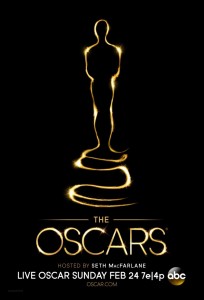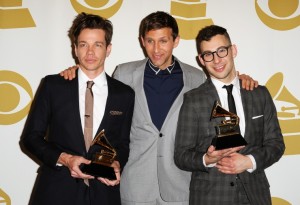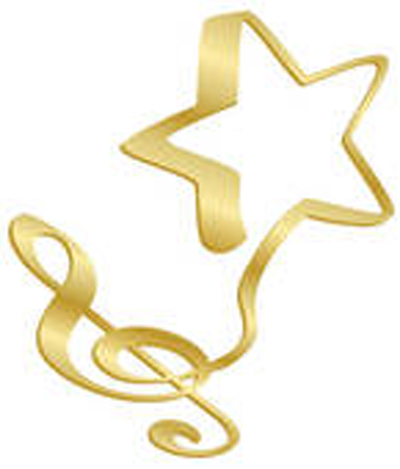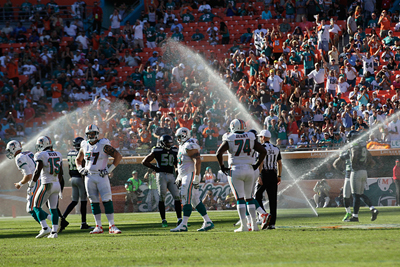 It’s been a wonderful year in film and we are all routing for our favorite movies at this year’s Oscars. But were you aware of the important role that marketing and advertising plays in the success of a movie?
It’s been a wonderful year in film and we are all routing for our favorite movies at this year’s Oscars. But were you aware of the important role that marketing and advertising plays in the success of a movie?
655 movies were released in 2012 and without advertising and marketing, we as movie-goers wouldn’t know about half the movies that come to theaters. If a film doesn’t make a big splash opening weekend you might as well consider it a box office casualty. So it seems promoting a film to the max is pretty essential these days—especially if you want a chance at getting recognized during award season.
But let’s skip past the movie trailers, the social media hype and the box office numbers. What happens after Seth MacFarlane declares you as a 2013 Academy Award nominee?
It’s called Oscar campaigning and it is a real thing. On average, studios can spend anywhere from $5 to $25 million mounting Oscar campaigns. This means that once the noms are out, the claws come out. Think schmoozing with Academy voters, VIP screening parties, brilliant public relations and frequent cast appearances with Leno, Jimmy and Conan.
Forget about the price of gasoline: The real skyrocketing expense this year is the Oscar race.
With two deep-pocketed studios locked into one of the closest best picture duels in recent memory and Academy Award voting extended by two weeks, the battle between “Argo” and “Lincoln” has sparked what several Hollywood executives say is the costliest campaign on record
The best picture contest recently has been dominated by independent productions such as “The Hurt Locker” and “The Artist” that couldn’t easily throw money around as if it were confetti. But in the current Oscar race, Warner Bros.‘ “Argo” and the Walt Disney Co.‘s “Lincoln” are each spending an estimated $10 million and potentially much more touting their film’s chances, up to double what a costly campaign has totaled in years past.
Other studios are only a little less profligate: Universal Studios (“Les Misérables”), 20th Century Fox (“Life of Pi”) and Sony Pictures (“Zero Dark Thirty”) all have spent lavishly on their “For Your Consideration” promotions.
Why is all this money spent?
A best picture win can bring in millions more at the box office, and help sell a ton more DVDs. What’s more, Oscar hardware can help woo image-conscious filmmakers into a studio’s fold. Disney, the distributor of “Lincoln,” has never won a best picture statuette, and Warner Bros. has a substantial interest in making “Argo” director Ben Affleck and producer George Clooney feel a lot of love.
Although the Academy of Motion Picture Arts and Sciences has curtailed the number of post-nomination screenings, parties and promotional email blasts, it has no power over paid advertising and related campaign expenses.
The spending blizzard includes covers in Hollywood’s trade newspapers (a single-page Variety cover can cost as much as $80,000), 30-minute TV spots highlighting a film’s bona fides (local broadcast time for recent half-hour “Lincoln,” “Argo” and “Silver Linings Playbook” ads can cost more than $100,000) and first-class air travel, limousines and hotels for filmmakers skipping around the globe to woo awards voters and collect lesser trophies (“Lincoln” star Daniel Day-Lewis doesn’t fly coach and stay at the local EconoLodge).
Outdoor “wallscape” advertising on buildings in prime real-estate locales can run more than $200,000, including production and installation costs. And then there are the high-end parties and receptions for the nominees, which, if held at tony establishments like the Beverly Hills Hotel, can set studios back $100,000 per event.
The expenditures begin months before Tuesday’s voting deadline by the Academy of Motion Picture Arts and Sciences. Studios start targeting various precursor awards groups such as critics organizations and show business guilds in the fall, often wooing votes with an array of gifts.
This year, members of the Broadcast Film Critics Assn. received four different lavish “Lincoln” books (including one devoted to Civil War recipes) as well as a special DVD that arrived in an inlaid, numbered box. After the 250-plus member group gave
Spielberg’s film a record 13 nominations, each voter received a personally signed thank-you note from the director on his letterhead stationery.
Universal sent every BFCA voter an iPod Shuffle (retail price: $50) pre-loaded with the songs from “Les Misérables.”
Universal said that its “Les Misérables” campaign, which is all but certain to bring a supporting actress Oscar to costar Anne Hathaway, cost less than $10 million.
After all the nomination and marketing it all comes down to the final voting for the Oscars which will end on Tuesday, February 19, at 5 p.m. PT. Ballots received after the deadline will not be counted.
The 5,856 voting members of the Academy of Motion Picture Arts and Sciences will have until the 19th to vote in up to 24 categories. This year the Academy for the first time offered its members the option of casting their ballots online. Final voting began on February 8.



